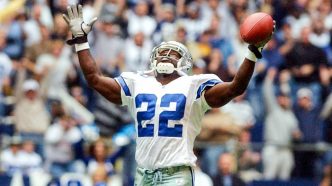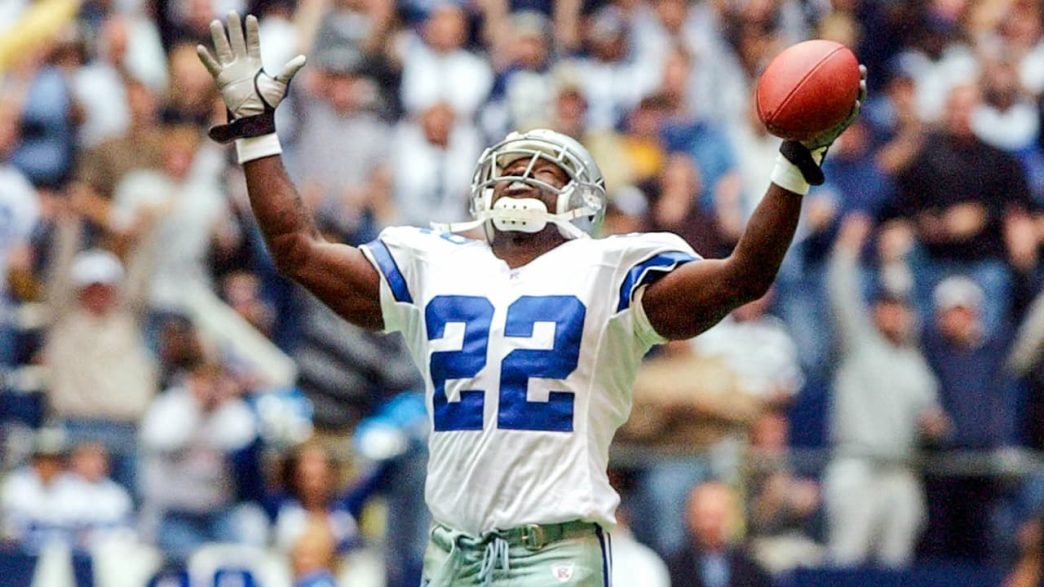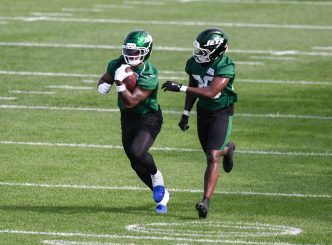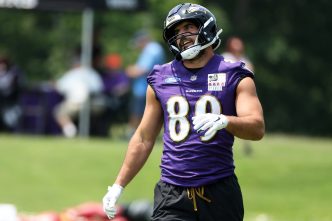When you talk about the Dallas Cowboys’ golden era in the 1990s, Emmitt Smith’s name is the first to come up, and for good reason. The running back, drafted 17th overall in 1990 out of the University of Florida, didn’t just redefine the position—he became the engine of a franchise that dominated the NFL. Smith’s blend of vision, agility, and sheer toughness made him a nightmare for defenses, and his impact on the Cowboys’ three Super Bowl titles still resonates with fans. Let’s dive into the career of a man who didn’t just carry the ball but carried a franchise to greatness.
Smith’s arrival in Dallas marked the beginning of something special. As a rookie, he rushed for 937 yards and 11 touchdowns, showing flashes of the brilliance that would define his career. His compact 5-foot-9, 210-pound frame belied his ability to break tackles and explode through gaps. By his second season, he was already a 1,000-yard rusher, piling up 1,563 yards and 12 scores. What set Smith apart wasn’t just his stats but his knack for showing up when it mattered most. He had a sixth sense for finding creases in defenses, often turning a two-yard gain into a 20-yard scamper. Coaches and teammates marveled at his work ethic, spending hours studying film to understand opponents’ tendencies. That preparation translated to the field, where he earned his first of eight straight Pro Bowl nods in 1991. For Cowboys fans, watching Smith churn out first downs was like witnessing a master craftsman at work.
The early ‘90s Cowboys weren’t just a team; they were a phenomenon, and Smith was the heartbeat. Alongside quarterback Troy Aikman and wide receiver Michael Irvin—the famed “Triplets”—he formed the core of an offense that overwhelmed opponents. His 1992 season was a breakout, with 1,713 yards and 18 touchdowns, earning him the NFL rushing title and a pivotal role in Dallas’ Super Bowl XXVII victory over Buffalo. Smith’s 108 yards and a touchdown in that game showcased his ability to dominate on the biggest stage. The next year, he was even better, rushing for 1,486 yards and nine scores while playing through a shoulder injury in a critical late-season game against the Giants to secure a playoff bye. That grit earned him the NFL MVP award and cemented his reputation as a warrior. In Super Bowl XXVIII, he ran for 132 yards and two touchdowns, earning MVP honors in another rout of the Bills. By the time Dallas won Super Bowl XXX in 1995, with Smith grinding out 92 yards and two more scores, he was the unquestioned leader of a dynasty. His ability to deliver in clutch moments made him the guy you wanted with the ball when the game was on the line.
Smith’s numbers tell a story of consistency that’s hard to fathom in today’s NFL. He led the league in rushing four times (1991, 1992, 1993, 1995) and posted 11 straight 1,000-yard seasons from 1991 to 2001, a testament to his durability and discipline. His 4.2 yards per carry average might not jump off the page, but it reflects his role as a workhorse who faced eight-man fronts designed to stop him. Defenses knew he was getting the ball, yet he still found ways to gash them, whether with a quick cut or a punishing stiff-arm. By the time he left Dallas after the 2002 season, he had amassed 17,162 rushing yards and 153 touchdowns in a Cowboys uniform—numbers that still rank among the franchise’s best. His 164 total touchdowns and 18,355 career rushing yards (including two seasons with Arizona) made him the NFL’s all-time rushing leader, a record he held until 2002. Those stats aren’t just impressive; they’re the kind of numbers that make you double-check the record books.
Beyond the numbers, Smith’s legacy is about impact. He wasn’t the flashiest runner—no one confused him with Barry Sanders’ highlight-reel jukes—but he was the most reliable. His teammates fed off his intensity, and his leadership in the huddle steadied a young team during their rise to prominence. In Dallas, where football is religion, Smith was a deity. His No. 22 jersey became a symbol of excellence, and his induction into the Pro Football Hall of Fame in 2010 felt like a formality. The Cowboys’ offense in the ‘90s was a machine, and Smith was the piston that kept it firing. He didn’t just run for yards; he ran for history, carrying the hopes of Cowboys Nation with every step.
What makes Smith’s career so remarkable is how he elevated those around him. Aikman’s pinpoint passes and Irvin’s acrobatic catches were critical, but Smith’s ability to control the ground game opened up the playbook. Defenses had to stack the box, leaving Irvin in single coverage and giving Aikman time to pick apart secondaries. That balance made Dallas unstoppable, and Smith’s willingness to embrace the grind—taking handoff after handoff in freezing playoff games or sweltering September showdowns—set the tone. His 1993 holdout, which briefly disrupted the Cowboys’ season, underscored his value: Dallas started 0-2 without him, then went 12-2 after he returned. That episode showed what every fan already knew: the Cowboys weren’t the same without Emmitt.
Today, Smith’s name is synonymous with Cowboys pride. Younger fans might know him from his post-career TV appearances or his Dancing with the Stars victory, but for those who watched him at Texas Stadium, he’s the guy who turned third-and-6 into a first down, who shrugged off linebackers like they were afterthoughts, who carried Dallas to glory. His records are a benchmark, but his legacy is in the moments—diving over the pile for a touchdown, breaking Jim Brown’s rushing record, or hoisting the Lombardi Trophy. Emmitt Smith didn’t just play for the Cowboys; he defined them, and his career remains a masterclass in what it means to be a champion.








